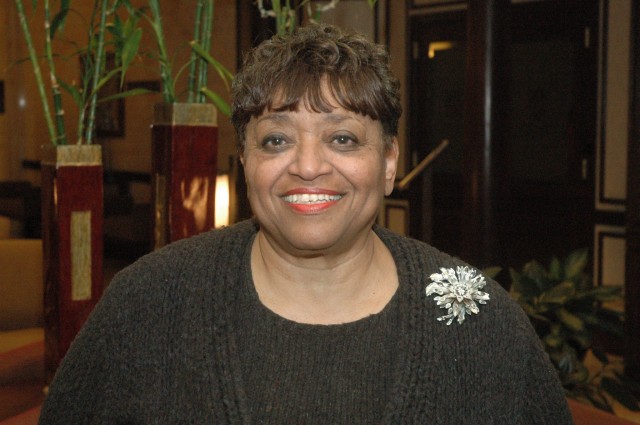 When the whole nation was coming to the conclusion that person’s ability is based upon their color of skin, Barbara Nichols looked the other way and tried to focus on her education and proved them wrong.
When the whole nation was coming to the conclusion that person’s ability is based upon their color of skin, Barbara Nichols looked the other way and tried to focus on her education and proved them wrong.
At first, she wanted to be in the movies or theater.
“I really wanted to be was an actress, but actors at that time only got roles as maids, servants, or custodians,” she says.
One of the many reasons she ultimately chose nursing was because black people around the 1950s and 60s could have been college educated but still work as maid or custodian.
“So, you could have a bachelor’s in physics or a bachelor’s in English, and you would be hired as a maid or a cook,” she says. “The assumption was blacks did not have the life experience or the intellectual capacity to graduate from nursing school.” Although this might have kept someone from pursuing their career, Barbara was not affected by this. In fact that perspective that people had was one of the thing that helped Barbara to get into Massachusetts Memorial nursing school, where quotas were the order of the day.
“At Massachusetts Memorial Hospital, they took in three Jewish girls on even-numbered years and two blacks on odd-numbered years,” she recalls. “So, I had one other black classmate, and there were blacks in the senior class above me. But, the majority of the students were white.”
Although she doesn’t know the reason behind the quota system, she remembers that she was not expected to do well. She says “the expectations were low” but she thrived academically; the school did not see that as a threat because there were only three students. As she put it into her own words, “the numbers were so small, the general stereotypes of blacks were not pervasive. So, you were judged on your abilities.”
Because she went to “regular” nursing school and not a black nursing school, she was hired by the Boston Children’s Hospital and there she worked in specialty wards.
She later joined the Navy Nurse Corps, where there was intense segregation. She worked in an intensive care unit which was not as segregated as the rest of the hospital. Working at the Navy Nurse Corps was one of the thing that made her want to go back and get a bachelor’s degree.
“When I was in the Navy, I was the only nurse on the unit … who didn’t have a bachelor’s degree”.
She got her bachelors from Case Western Reserve University. After that she moved to Wisconsin to work in St Mary’s Hospital in Madison and got her masters from the University of Wisconsin.
After that she realized that she needed to be in the leadership position. “What I learned early on, the prejudice exists when you’re just a staff nurse and you have ideas,” she says. “But if you’re a head nurse or a supervisor, or a director, by position, they have to listen to you. So, what I observed out of my experience with prejudice, if I wanted my ideas to be considered, I had to be in a leadership role. Nobody asks you to apply for the leadership roles because they don’t think you’re smart enough. I just did it, and usually was successful. So, what I learned early on, to be accepted for my knowledge, to be accepted for my skill, to be accepted for my abilities, I had to be in a leadership role.”
he also mentions that leadership position is not offered openly, you have to be proactive. After learning that, she started to get more involved in Wisconsin Nursing Association and American Nursing Association and eventually, she became the president for both of them — the first Black woman to lead both organizations. Later on, she would also be appointed as the Secretary of the Wisconsin Department of Regulation and Licensing.




























